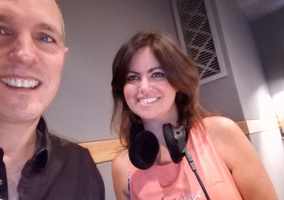The notion of philanthropy and charitable giving is deeply rooted within Judaism and Jewish values are often built on giving and supporting communal life and wider society. In fact, research by the Institute of Jewish Policy Research found that 93% of British Jews make at least one charitable donation a year, to either a Jewish or non-Jewish charity.
The act of giving to charity is often known in Hebrew as tzedakah. However, tzedakah is not simply about charitable giving as the root of the word in Hebrew is Tzedek, meaning justice or righteousness. In that sense, tzedakah is an act of making your community and the world around you a better place.
For many in the Jewish community, charitable giving is seen as a mitzvah, a commandment or a good deed. It’s not just donating to any charity that drives Jewish people, the Torah (the foundational religious book of the Jewish religion) encourages Jewish people to give in a way that is personally meaningful, and that ‘moves your heart’.
Tzedakah inspires legacies
As part of tzedakah, there’s a long tradition of leaving gifts in wills in the Jewish faith. Charities can often be left a gift in a will as a thank you after caring for a person directly, or a member of their family.
Leaving a legacy not only helps Jewish people continue their own legacy, but it acts as an educational message to perpetuate tzedakah. It shows children and other loved ones the importance of tzedakah, even in death and how their memories can be a blessing.
The Torah shares many stories of charitable giving, for example, in a section of Leviticus, it encourages the biblical Israelites to leave a corner of their fields unharvested so the poor can take it. And as the medieval Jewish philosopher, Maimonides, says: ‘Tzedakah is more important than anything else.’
Gifts in wills have to be talked about in the Jewish community
Whilst there’s a long communal history of giving within Judaism, it cannot be taken as a given that someone will leave a gift in their will.
The more people are engaged and understand the cause of the charity, and how their giving helps, the more likely they will be to support with a legacy. At Jewish Care, a quarter of our fundraised income comes from gifts in people’s wills. To encourage this, we regularly share legacy stories and information with our supporters and as part of our legacy strategy we offer a free will writing service.
The potential for Jewish legacy
The Jewish faith may be small in population size but its impact on charities through legacy giving is not to be underestimated. Guided by the Jewish principles of tzedakah, tikkun olam (making the world a better place), and a strong commitment to honour loved ones who have passed away, leaving legacies to charity in a will, or indeed giving in memory of a loved one, is something that charities like Jewish Care place huge importance.
From a young age, Jews are often encouraged to consider how they will give back to their community. This can be through the emphasis placed on volunteering or through making a financial contribution. This means that by the time one considers leaving a legacy, Jewish people are well aware of the significance of this act of leaving a gift, often having possibly contributed to a charity or multiple charities throughout their lifetime.
Engaging with a Jewish audience
Today there are now more British Jews aged 66 to 70 than in almost any other five-year age band. Engagement with the baby boomer generation could provide a great opportunity for charities if they can engage with those who are in a position to leave a legacy or gift. For charities and fundraisers outside of the faith, understanding Judaism is key, as it can often give context to people’s motivations for giving.
But whilst faith is an important element of identity, contributing to a range of good causes is an important part of Jewish life. In fact, British Jews are more likely to direct their donations to general charities (45%) than they are to Jewish charities (37%). With one in five donors now including a gift to charity in their will, there’s no reason why these supporters can’t play an important part in the world of legacies.
Related Articles











